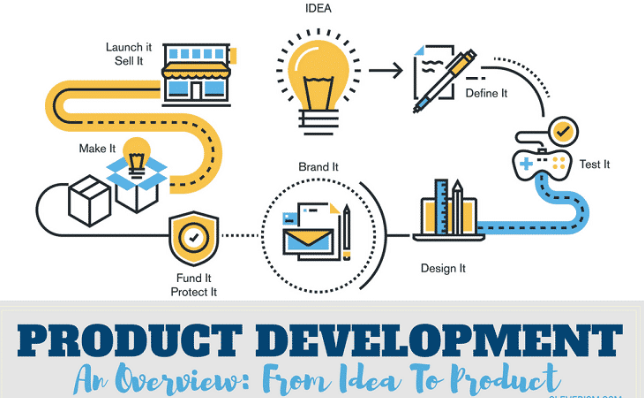Hey there, business trailblazers and growth enthusiasts! Ever feel like you’re on a relentless quest to scale up in today’s lightning-paced business arena? You’re not alone. Scaling isn’t just a fancy buzzword; it’s the lifeblood of thriving in our modern economic landscape. But let’s be honest – the journey to scale your venture is often like navigating a labyrinth, filled with twists and turns that can make or break your success. That’s precisely why we’re peeling back the curtain on some game-changing scaling techniques – the unsung heroes in business growth.
We’ve got seven unique, perhaps even unconventional, strategies that are not just talk but about action and results. These aren’t your run-of-the-mill tips; these are the hidden gems that can skyrocket your revenue, potentially doubling or even tripling it. So, buckle up and get ready to dive into the world of scaling techniques that could be the secret sauce to your business success.

Introduction to the Scaling Techniques
As we dive into the specifics of scaling your business, we must understand that each technique has unique advantages and challenges. The following sections will explore various strategies, each focusing on a different aspect of business growth. From leveraging modern technology to forging strong customer relationships, these techniques are designed to provide a holistic approach to scaling. Let’s embark on this journey of discovery and growth together.
Scaling Techniques 1: Leveraging Automation for Efficiency
In the age of digital transformation, automation stands as a cornerstone for scaling businesses. It’s not just about replacing manual labor with machines; it’s about enhancing efficiency and precision in every business process. The right technology can streamline operations and reduce costs, from automated customer service bots to sophisticated data analytics tools. For instance, CRM systems like Salesforce can automate sales processes, while tools like Zapier can integrate different apps to automate routine tasks, saving time and reducing errors.
Scaling Techniques 2: Strategic Outsourcing for Growth
Outsourcing is often seen as a cost-cutting measure and a potent scaling technique. Businesses can focus on their core competencies by outsourcing non-core IT, HR, or customer service functions. The key is choosing the right outsourcing tasks and selecting vendors who align with your company’s values and quality standards. Managing remote teams and outsourced partners effectively can turn this strategy into a significant growth lever.
Scaling Techniques 3: Data-Driven Decision Making
In the current business landscape, intuition alone doesn’t cut it; data-driven decision-making is crucial. Collecting, analyzing, and acting upon business data can provide insights that drive strategic decisions. Tools like Google Analytics for web data and Tableau for data visualization help understand market trends, customer behaviors, and operational bottlenecks. This informed approach to decision-making can significantly enhance your scaling efforts.
Scaling Techniques 4: Expanding Market Reach with Digital Marketing
Digital marketing is a powerful tool for scaling businesses. It’s not just about having an online presence but strategically positioning your brand digitally. Effective SEO practices ensure your business is easily discoverable online, while content marketing and social media strategies can engage and expand your audience. Regularly measuring and optimizing these efforts based on analytics can lead to exponential growth in market reach.
Scaling Techniques 5: Building a Scalable Business Culture
Often, the most overlooked aspect of scaling is company culture. A culture that supports growth, innovation, and adaptability is essential. This involves fostering a work environment that encourages creativity, accountability, and teamwork. Leadership plays a critical role in setting this culture. By emphasizing these values, you can build a team that is resilient, adaptable, and ready to scale.
Scaling Techniques 6: Innovative Product Development and Diversification
Expanding your product line or diversifying your services can significantly contribute to business scaling. This involves identifying new market needs and developing innovative solutions to meet them. It’s not just about adding more products; it’s about enhancing your offerings to align with your brand and meet customer expectations. For instance, Apple’s diversification into various tech products beyond computers, like smartphones and wearables, has been critical to its growth. This technique requires thorough market research, a keen understanding of customer needs, and a robust development strategy.

Scaling Techniques 7: Strategic Partnerships and Collaborations
Forming strategic partnerships and collaborations can open new avenues for scaling. This involves aligning with other businesses or organizations that complement your services and can help you reach new markets or improve your offerings. For example, a small tech startup might partner with a giant corporation to gain access to more resources or a broader customer base. The key to successful partnerships is finding synergies where both parties can benefit and grow together.
Bonus Scaling Techniques: Focusing on Customer Retention and Loyalty
While acquiring new customers is essential, focusing on customer retention can be more cost-effective and impactful for scaling. This involves creating an exceptional customer experience, engaging with customers regularly, and building loyalty programs. Happy customers are more likely to become repeat buyers and even brand advocates. Tools like customer feedback surveys, loyalty programs, and personalized marketing campaigns can help nurture long-term customer relationships.
Wrapping up the Scaling Techniques
Scaling a business requires more than hard work and ambition; it demands strategic thinking and innovative techniques. The seven techniques discussed here offer a roadmap for businesses looking to expand their horizons and double their revenue. Remember, the journey of scaling is continuous and ever-evolving. Embrace these techniques, adapt them to your unique business context, and watch your business soar to new heights.
Frequently Asked Questions About Scaling Techniques
As you explore the diverse strategies for scaling your business, you may have specific questions about how to implement these techniques effectively. In this FAQ section, we’ve compiled and answered some of the most common queries related to scaling strategies. These answers aim to provide you with deeper insights and practical advice, helping you navigate business growth’s complexities more confidently. Whether you’re a startup looking to expand or an established business aiming for new heights, these FAQs are designed to address your most pressing concerns.
What Are the Most Effective Automation Tools for Scaling a Business?
Answer: Effective automation tools vary depending on business needs, but some universally acclaimed ones include Salesforce for customer relationship management, Zapier for integrating different applications, and HubSpot for marketing automation. These tools help streamline operations, improve customer interactions, and enhance data management, making them indispensable for scaling efforts.
How Can Outsourcing Contribute to Business Scaling Techniques?
Answer: Outsourcing contributes to business scaling by allowing companies to focus on their core competencies while external experts handle non-core functions. This approach not only cuts costs but also improves efficiency and quality. Critical areas for outsourcing include IT services, digital marketing, customer support, and administrative tasks—the success of outsourcing hinges on choosing the right partners and maintaining clear communication.
Why Is Data-Driven Decision Making Crucial in Scaling a Business?
Answer: Data-driven decision-making is vital for scaling because it replaces guesswork with insights derived from data analysis. This approach helps understand market trends, customer preferences, and operational efficiencies. Tools like Google Analytics and Tableau can assist in collecting and analyzing data, enabling businesses to make informed decisions that align with their growth strategies.
Can Digital Marketing Truly Expand a Business’s Market Reach?
Answer: Absolutely. Digital marketing is a powerful tool for reaching a broader audience at a lower cost than traditional marketing methods. It encompasses SEO, content marketing, social media engagement, and email marketing. A well-executed digital marketing strategy can increase brand visibility, engage potential customers, and drive conversions, essential for scaling a business.
How Does Company Culture Influence Business Scaling Techniques?
Answer: Company culture is pivotal in scaling because it shapes employee behavior and attitudes toward growth and change. A culture that encourages innovation, adaptability, and teamwork creates an environment conducive to scaling. It’s crucial for leadership to cultivate a positive culture that supports the company’s scaling objectives, as this can lead to improved employee performance and retention, ultimately driving business growth.
Ready to Scale Your Business?
Take the first step towards accelerating your business growth today. Apply these techniques and watch your revenue soar. Have questions or need expert guidance? Sign up for our weekly newsletter on our website for ongoing insights and exclusive tips. Join our community of thriving entrepreneurs and stay ahead in your business journey!
Let’s grow together!





